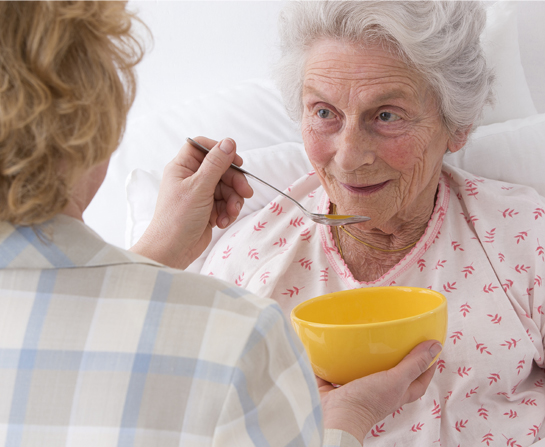THE ART OF CAREGIVING PART 3
May 8, 2022 Return

WORDS LIM TECK CHOON
As your loved one ages, there may come a time when they become bedridden and require more specific care.
Emotional well-being
- Continue to engage your loved one into being part of the family whenever possible.
- Help your loved one communicate with friends and family members using WhatsApp, Facetime, etc. Even if your loved one couldn’t speak, they will appreciate being spoken to by friends and family members.
- Encourage friends and family members to pay your loved one a visit.
Feeding
Let loved ones feed themselves for as long as they are capable of doing so. You can assist and offer support, but let them lead the way.
However, should your loved one lose the ability to feed themselves, you can try the following.
- Only feed your loved one when they are awake and alert.
- Seat your loved one upright, with the back forward and straight, either on a chair or in bed.
- When you feed your loved one, face them directly. Wait for one mouthful to be completely swallowed before giving another.
- Make sure that there isn’t any food residue in the mouth or cheek when finished.
- If your loved one’s voice is gurgly (rough) after swallowing, encourage them to make an extra swallow in order to clear all residues or secretions, before offering another spoonful of food.
- Keep mealtimes pleasant and enjoyable. You can talk to your loved one as you feed—even if they may not reply much, they will appreciate your efforts to lighten the mood.
- Keep your loved one sitting up for at least 30 minutes after a meal.
Pressure Ulcer/Injury prevention
- Help change the position of your loved one on the bed at least every 2 hours.
- Check your loved one for any skin changes at pressure-prone sites such as the heels, buttocks, sacrum (lower back bone), hip bone, elbow, and shoulder blades. Do this regularly at every opportunity while you are bathing, positioning, or dressing your loved one, as well as when you are changing their wet or soiled linens.
- Provide good skin care to your loved one, by ensuring that the perineal area (the area around the anus and the genitalia) is clean and dry, especially if the older person is suffering from urinary or faecal incontinence.
- Make sure that your loved one’s bed linen is free from wrinkles.
- Be gentle with your loved one. Do not drag them around in bed when you are moving or repositioning them, as doing so may tear their skin.
Consult your loved one’s healthcare team for more specific advice on feeding, physical activity, etc. |
